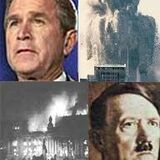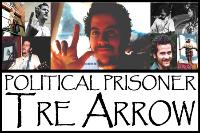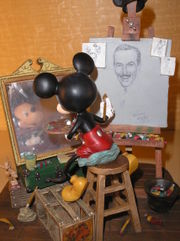Two months after the US-led invasion of Iraq, Alanna Hartzok published her essay “Thanks to war, U.S. once again has more control over the oil in Iraq” in the 2 May 2003 issue of Chambersburg, Pennsylvania’s Public Opinion.
An expert below offers American readers a concise historical synopsis of American intervention in Iraq. It suggests more interest among our leaders of exporting oil to the US than modeling democracy for Iraqis.
Harzok is Co-Director of Earth Rights Institute, a civil society organization working for economic justice and peaceful resolution of conflicts. In addition to helping enact and writing about tax reform legislation, she ran for Pennsylvania’s 9th District US House seat in 2001.
Many freshmen Democrats ran on and won congressional seats with anti-war campaigns; they will join their veteran majority leaders in January when the 110th Congress convenes. How will their actions affect the next chapter in the ongoing US-Iraqi historical saga?
…. Here is a brief historical perspective on what led up to the war against Iraq:
In 1917, the U.S. entered World War I on the side of Britain and France on condition that its objectives for gaining access to new sources of raw materials, particularly oil, be taken into account. In February 1919, Sir Arthur Hirtzel, a top British colonial officer, warned his associates: "It should be borne in mind that the Standard Oil Co. is very anxious to take over Iraq." At the end of the war, control of Iraqi oil was split with an equal percentage going to Britain, France, Holland and the U.S. Iraq received exactly 0% of its oil.
In 1927 the Iraqi Petroleum Co., composed of Anglo-Iranian (today British Petroleum) Shell, Mobil and Standard Oil of New Jersey (Exxon) was set up and within a few years totally monopolized Iraqi oil production.
In the latter stages of World War II the Roosevelt and Truman administrations, dominated by big banking, oil and other big business interests, were determined to ensure the dominant position of the U.S. Britain had to accept its new role as the US's junior partner.
By the mid-1950s, Iraq was jointly controlled by the U.S. and Britain and the people lived in extreme poverty and hunger. The British maintained military airfields. Iraq was only independent in name and was ruled by a corrupt monarchy under King Faisall II and a group of feudal landowners.
On July 14, 1958, the Iraq Revolution deposed the king and his administration and took control of Iraq oil for the people of Iraq.
President Eisenhower called it "the gravest crisis since the Korean war."
A combination of factors forced U.S. leaders to accept the loss of control of Iraq.
After nationalizing its own oil, the people of Iraq used the funds to establish free medical care for all, free education up through graduate school and nearly full literacy. Women gained more human rights than anywhere else in the Arab world. Iraq was emerging as a first world nation.
Over the next three decades, the U.S. applied many tactics designed to weaken and undermine Iraq as an independent country. The U.S. applauded the suppression of the trade unions by the government of Saddam Hussein in the late 1970s.
In the 1980s, the U.S. helped to fund and arm Iraq in its war against Iran and at the same time was sending anti-aircraft missiles to Iran. Ex-Secretary of State Henry Kissinger revealed the real U.S. attitude about the Iran/Iraq war when he said: "I hope they kill each other."
A million people were killed and both countries were weakened.
Today, the U.S. has prevailed in its goal to once again control the oil resources of Iraq. No weapons of mass destruction have been found in Iraq and no links with terrorists have been proven. The U.S. has secured the oil fields of Iraq and the Oil Ministry building in Baghdad, allowed the national museum and other centers of cultural treasures to be bombed, burned and looted, and established four permanent military bases in Iraq.
Exxon/Mobil and other U.S. corporations are following through on plans made several months ago for the "reconstruction" of Iraq.
Maj. Gen. Smedley Butler, U.S. Marine Corps, said this in a speech in 1933:
"War is just a racket. A racket is best described, I believe, as something that is not what it seems to the majority of people. Only a small inside group knows what it is about. It is conducted for the benefit of the very few at the expense of the masses. ..."
[Read all the essay here.]
# posted by Moose Kateer : 7:18 PM













